A Complete Guide to Living in Bali
Adjustment to living in a new country can be more challenging than one anticipates. This guide covers everything you need to know about living in Bali, including how to get set up, recommended apps to download, a list of do’s and don’ts, and some basic Balinese language phrases.
If you’re seriously considering a move to Bali check out my blog post: A Complete Guide to Moving to Bali for a step-by-step guide and my blog post: Pros and Cons of Living in Bali.
Weather in Bali
Bali experiences two distinct seasons – the dry season, which lasts from April to October, and the rainy season, which lasts from November to March. The temperature in Bali remains warm and humid throughout the year.
During the rainy season, it may not necessarily rain continuously throughout the day, but there may be intermittent periods of rainfall, with some days experiencing heavy rainfall while others remain dry.
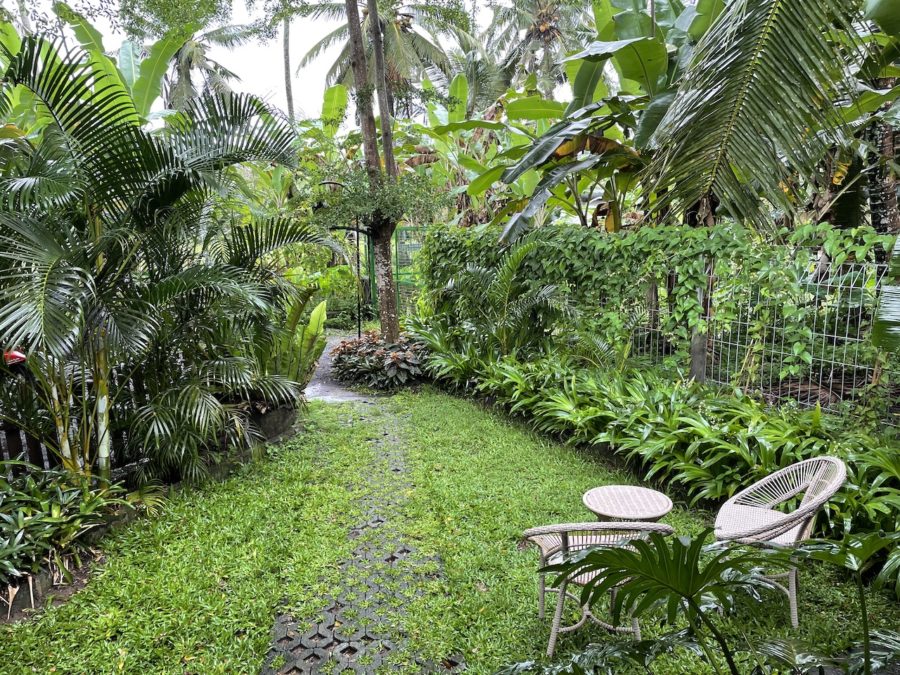
Living in Bali
Rent
Airbnb is the best website to book long-term accommodation as they often give you discounts for monthly stays. What is great about Airbnb too is that most places include cleaning, electricity, gas, water, and wifi!
Facebook groups such as Bali Villas for Rent, Ubud House and Villa, Bali Cheap Villa Rentals, Bali Housing, and Villas are groups to join for more long-term renting options.
Rent is always paid upfront before the month begins. If you decide to privately rent from a local in Bali you will most likely need to pay in cash or through transfer.
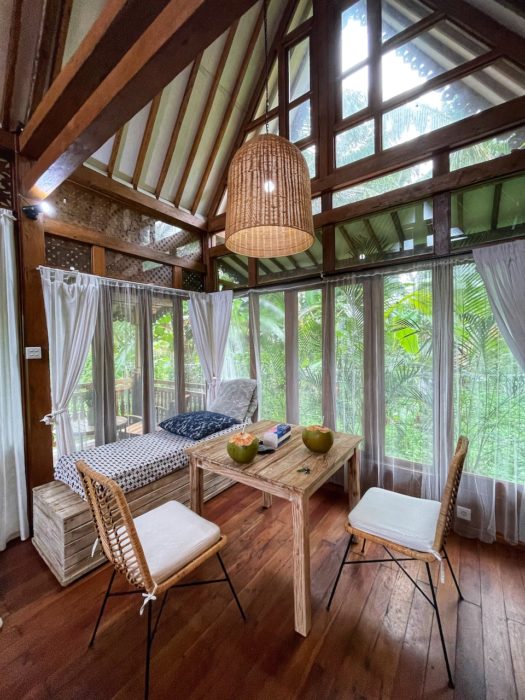
Groceries
The main supermarket for foreigners is Pepito and they have these everywhere in Bali! Pepito isn’t as affordable as local supermarkets because they carry imported foods.
You can shop at the local fruit and vegetable shops or markets to get a cheaper price on your fruit and veggies.
Sometimes you will see chicken selling on the side of the road but it’s best to buy your meat from Pepito or Prima Freshmart just to be safe. Prima Freshmart sells chicken, sausages, eggs, etc., at a cheaper price than Pepito and they sell in bulk!
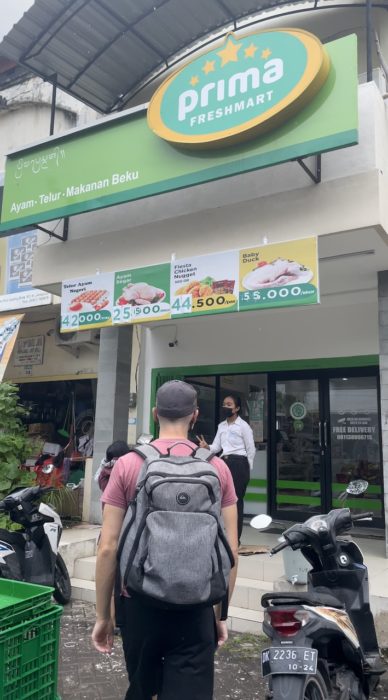
Visa Extension
If you arrived in Indonesia on a B211A visa you will need to extend your visa after the initial 60-day period.
If you went through a visa agency company usually they will contact you ahead of time to organize your extension. Keep in mind the visa expiry date which is stamped onto a sticker in your passport and make sure to start the extension process one week prior.
To apply for the extension you will need to drop your passports off, fill out some forms, and pay the fee at the visa agency. For the first extension, the visa agency will organize a date and time for you to go to the immigration office for photos and fingerprints.
If you would like to live in Bali longer than 6 months you can apply for the B211A onshore visa which will give you an extra 5 months.
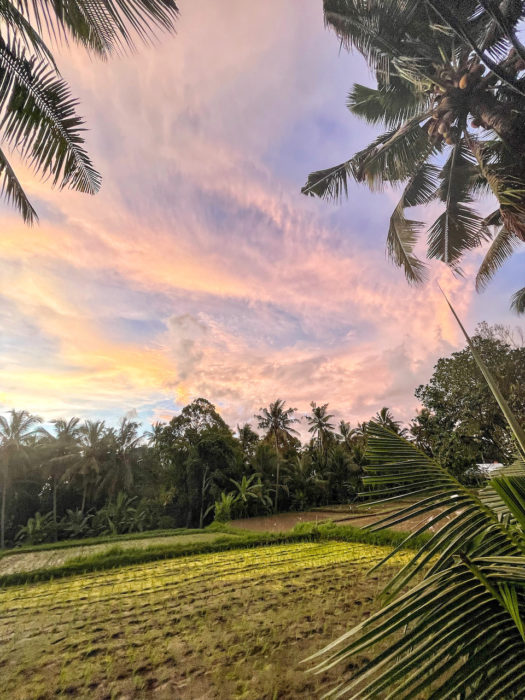
Register your phone’s IMEI Number
Important To Know: If you plan on living in Bali for more than 3 months you must register your phone’s IMEI number either at the airport on arrival or at a local customs office within 90 days of entering Indonesia! Failure to do this results in your phone being blocked after 90 days. You will not be able to use your phone with any SIM card in Bali.
To ensure smooth processing, ensure that you have the following items at hand: your phone, IMEI number, passport, and proof of arrival flight. In the event that the value of your phone is less than 500 USD, no import taxes will be required. However, if the value exceeds this amount, taxes will be applicable.
Before you visit the local customs office you can register online through this website and receive a QR code to take with you.
SIM Card and Data Plan
I recommend buying a local SIM card for your phone so that you can use it for apps such as GoJek, Google Maps, etc. Data plans are very affordable in Bali.
There are many places along the streets to buy a SIM card. Avoid buying one at the airport as they are generally more expensive.
The best mobile provider to go with is Telkomsel. Telkomsel has the best coverage and their internet reception is usually very good.
Data plans last for a month. Before the month ends you will need to top up your SIM card. You can top it up by downloading the Telkomsel app on your phone or through the Traveloka app. You have the option to pay via GoPay on the Telkomsel app which would probably be the most convenient way to pay.
GoPay is a digital wallet that stores IDR to pay services such as GoJek and Telkomsel etc. The benefit of setting up GoPay is that they often have discounts and deals. You can set and top up GoPay via cash at any Alfamart.
Transportation
There is no public transportation in Bali. Most people living in Bali get around by scooter. You can rent a scooter for around $5 a day or $60 a month and you can find places to rent a scooter everywhere.
If you don’t want to drive a scooter your next most affordable choice is Go-Jek. Although taxis are available in Bali, they tend to be pricier. Should you require a taxi, stick to Blue Bird taxis as they operate on a metered basis.
Go-Jek is similar to Uber and Lyft. If you have signed up for GoPay you will receive discounts on transport also.
Some places in Bali won’t allow pick-up via Go-Jek, especially at the popular tourist attractions. What we do is get a taxi to somewhere nearby that Go-Jek can pick us up from and then get Go-Jek for the rest of the way. It was much cheaper doing it this way than getting a taxi the whole way!

Laundry
Most rentals don’t have a washing machine or dryer especially if you book on Airbnb. You could hand wash your laundry and hang it to dry outside however it’s so affordable and convenient to get laundry done for you.
It costs around $2 to get our laundry washed, dried and ironed. They usually charge by the kilo but occasionally they do charge per piece of clothing.
Laundry is generally ready within 2 days. You can pay for express laundry if need be and it only costs a little extra.
Internet
Just make sure you find a place that has good reviews on wifi. Most places in the main touristy areas will be fine.
Numerous cafes in Bali provide complimentary Wi-Fi, attracting digital nomads and expats.
Water
Drinking tap water in Bali can make you sick. If water is not included in your rental then the most affordable way to purchase water is to buy 19L water jugs for about $2.50 – $3.00. Buying 19L water jugs also reduces plastic consumption which helps the environment!
Upon acquiring a water jug, refilling it typically costs only about $1.50 to $2.00, where they exchange your empty jug for a filled one. Some places provide free delivery services!
You can use tap water for cooking and making tea and coffee.
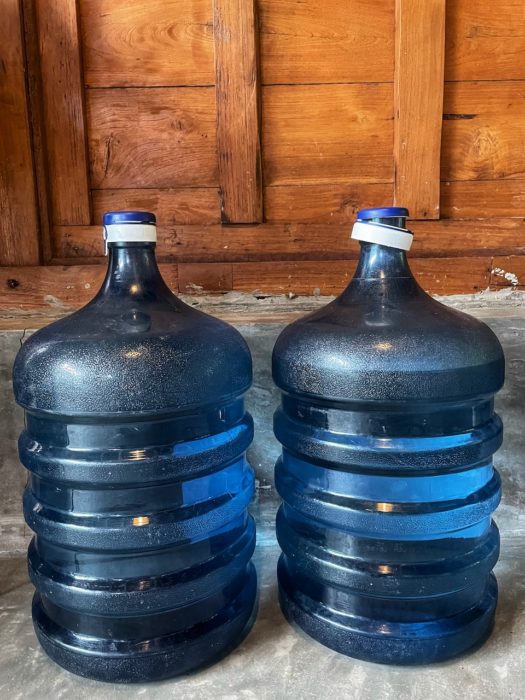
Travel Insurance
It’s wise to have travel insurance to cover medical expenses should they arise while you’re living in Bali.
I use SafetyWing as they are the most affordable and convenient.
I recommend their Nomad Insurance which is great for travellers, digital nomads, and people who work remotely due to its flexibility. You can purchase the insurance before you leave for your travels or even on your travels!
The insurance payments are monthly and automatically deducted from the method of payment chosen. I found this convenient as many travel insurance companies will ask you for a time frame for coverage.
Nomad Insurance is the most suitable option for those who are on a flexible schedule when it comes to travelling. You can cancel it anytime or keep it going even if you travel to other destinations or visit your home country.
Money
Hotels, restaurants, and large businesses will usually have card machines but it’s good to check in advance.
Be careful when taking out cash at ATMs. Many cards have been skimmed in Bali. Check to make sure the area you place your card in is firmly fixed and has not been tampered with.
Don’t forget your card at ATMs. Some ATMs don’t eject your card straight after you withdraw money. You have to press a selection on the screen to release the card.
Keep an eye on your wallet, phone, and valuables at all times. If you’re riding a scooter avoid having your phone out as there have been accounts where people have had their phones stolen right from their hands by others on scooters. Put them in a safe place in your bag or the scooter seat so no one can get to them easily.
The Wise card has low conversion fees and zero transaction fees. Check here to see if the Wise card is available in your country.
The Wise card is easy to use and the best way to access my money. I have had no issues with my Wise card and have used it for 3 years in Southeast Asia at hotels, restaurants, shops, etc. It is easy to withdraw money at an ATM and I am only charged a fee if I withdraw over a certain amount per month or if the ATM has its own fees.
Make sure to sign up and create an account with Wise even if you’re not going to use their card. Wise is the best solution to get paid, pay anywhere, and move money around in different currencies as it has the lowest rate. It’s free to open an account and it’s the easiest way to move your money to different bank accounts in other countries.
After you have transferred money onto your Wise account you can convert it to the currency you need. When using the card at restaurants and hotels etc. it will take it out of the money already converted with no fees.
A couple of hotels in Bali did not have card machines operating at the time of my stay and I did not have enough cash but I was able to transfer money into their bank account through the Wise app using IDR money already converted. The process was very quick and they received my money within minutes!
Wise has made my life easier living in Bali and I honestly don’t know what I would have done without it!
Apps to Download
| App | Reason |
| The locals and businesses mainly use WhatsApp for communication | |
| Go-Jek | Food delivery and transportation service |
| Grab | Food delivery and transportation service |
| Google Maps | To navigate your way through Bali on a scooter |
| Telkomsel | Mobile provider app to top up data |
| Traveloka | To top up data for your phone and cheap flight deals |
| Wise | To access your account |
| Currency Converter Plus | Most user-friendly app for global exchange rates |
Do’s and Dont’s
Don’t drink the tap water in Bali because it can make you sick. Buy bottled water and use this even when brushing your teeth.
Do cover up when visiting the temples. Temples are considered holy places where men and women must be dressed modestly. Wear a sarong or anything that goes below the knee and make sure your shoulders are covered. Usually, when visiting temples they will have sarongs for you to loan.
Don’t visit temples when you are menstruating. The staff at the entrance of the temples will ask women if they are menstruating because it’s considered unclean to be at the temple during this time.
Do bargain but not too much. When visiting markets you can barter with the locals for a better price but be reasonable. They don’t make much money as it is.
Don’t display physical affection such as kissing when visiting the temples as a sign of respect.
Do tip if you receive good service. Balinese people get paid very little so even 10 cents which might seem like nothing to us is appreciated by them.
Don’t step on their offerings on the streets. You will see fragrant parcels made from palm leaves placed on the streets everywhere. These are gifts designed to appease the Spirits. They are usually placed in front of doorways and can also be seen on the pavement. Be respectful and try not to step on them.
Balinese Language Phrases
| English | Balinese/Indonesian |
| Hai | Hello |
| Apa Kabar? | How are you? |
| Baik | Good or fine |
| Soap nama kamu? | What’s your name? |
| Nam Saya…. | My name is… |
| Saya Dari…. | I am from…. |
| Terima Kasih (Indonesian) or Suksma (Balinese) | Thank you |
| Tidak | No |
| Ya | Yes |
| Maaf | Sorry |
| Tolong | Please |
| Selamat Tinggal | Goodbye |
| Permisi | Excuse me |
| Berapa? | How much? |
| Di mana Toilet? | Where is the toilet? |
Living in Bali offers a unique blend of cultural richness, natural beauty, and vibrant expatriate communities. As you embark on your journey to make Bali your home, may this guide serve as a companion.
Disclosure: Bear in mind that some of the links in this blog post are affiliate links and if you go through them to make a payment I will earn a commission. I link these websites because they give the best value/service and not because of the commission I receive. The decision is yours, and whether or not you decide to pay using these links is completely up to you. I only recommend websites to book through that I use myself and I know will be beneficial!
like this website? Get it on thestartupmarket.com
T & C'S
privacy policy
contact
customised Itineraries
shop
blog
about